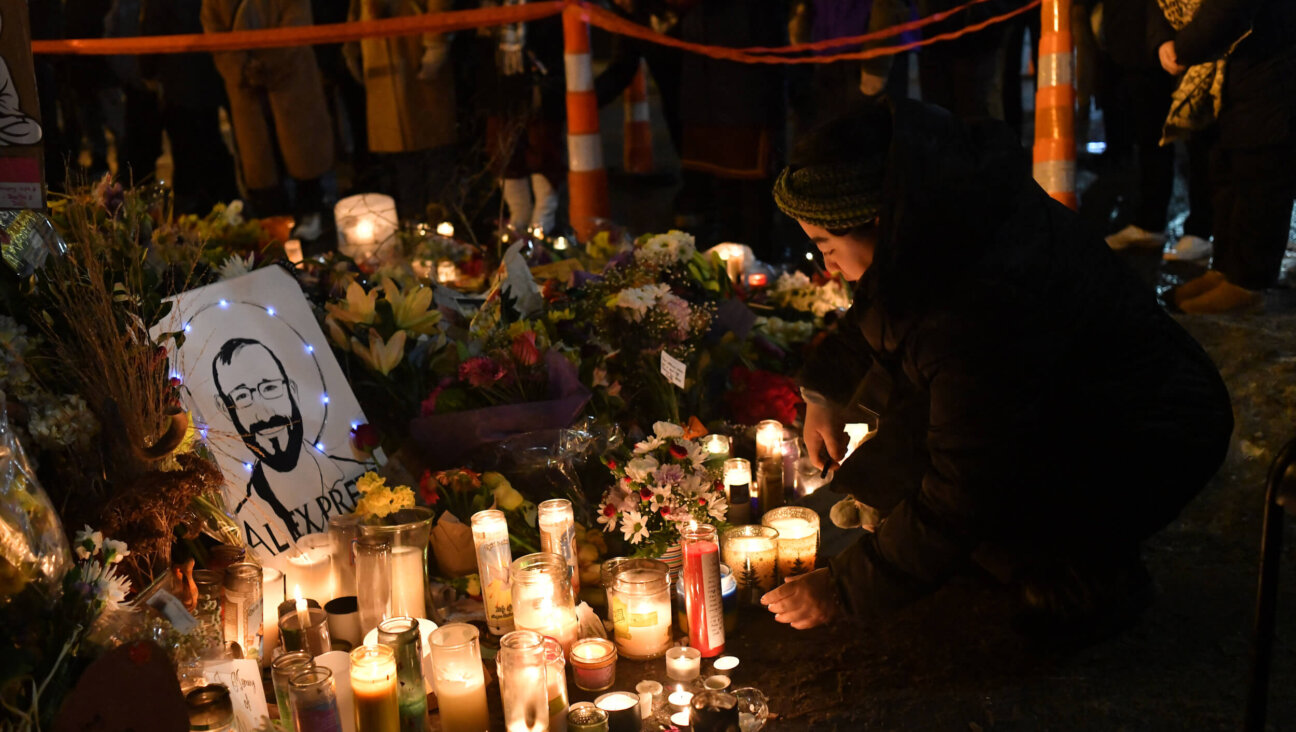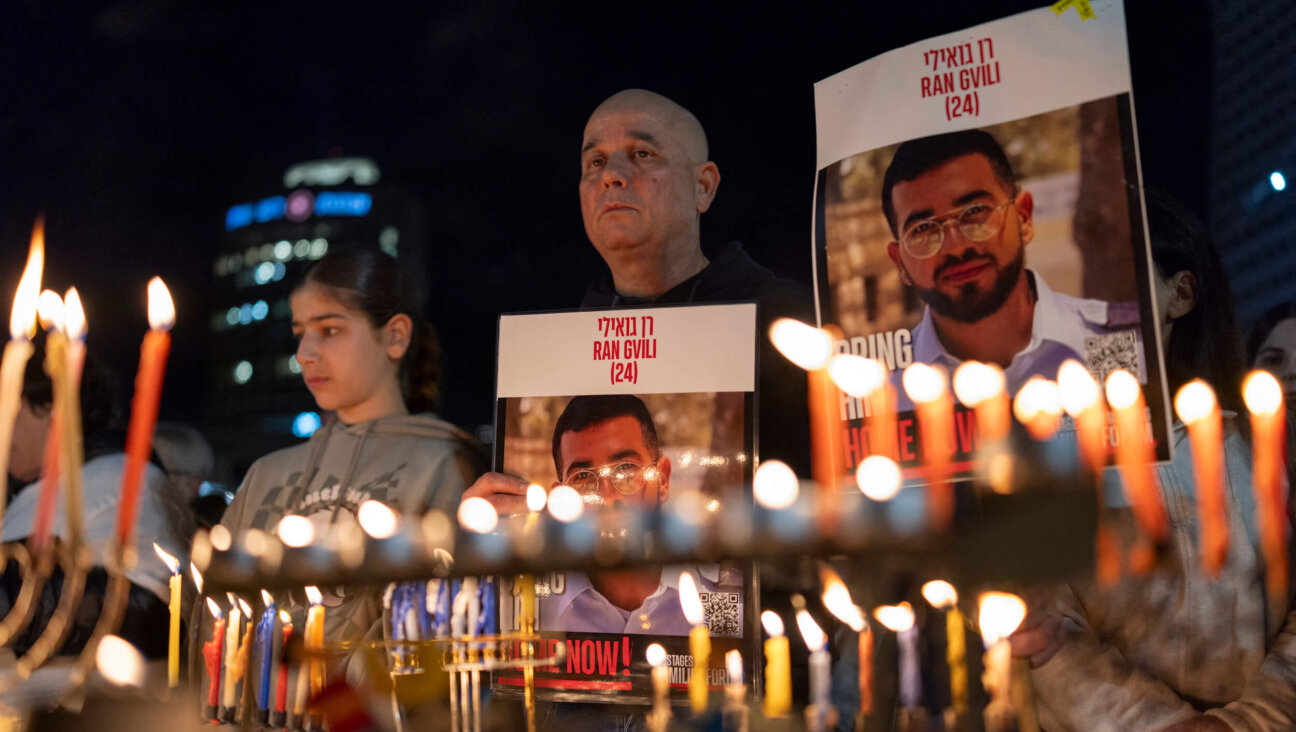Looking for Sparks of Justice
International justice has taken a pasting during the watch of this administration.
In 2002, President Bush said, “We want the United Nations to be effective, and respectful, and successful. We want the resolutions of the world’s most important multilateral body to be enforced.” But this year he nominated John Bolton to be America’s representative to the U.N. — a man who has said treaties are not legally binding, calling them mere “political obligations.”
The United States continues to get away with being shocked — shocked that torture took place in its facilities at Abu Ghraib, Guantanamo, Afghanistan, in dozens of American detention facilities around the world, and in at least half a dozen Middle Eastern and South Asian countries notorious for torture to whom we outsource our terrorism suspects. Not even a smoking gun — an order approving illegal interrogation methods — put Ricardo Sanchez, a lieutenant general and the former head of coalition forces in Iraq, in the dock. Which must have been good news for everyone above him in the torture chain whose heads he might then have been motivated to deliver to an alert prosecutor.
The United States shunned international justice for the trials of Iraqi bigs, opting instead for a so-called “Iraqi-led tribunal” in which access to lawyers from the time of arrest is not guaranteed, proof of guilt beyond a reasonable doubt is not required and the death penalty is not banned.
The United States called for the prosecution of Sudanese officials for the ongoing crimes against humanity in Darfur, a made-to-order job for the new and permanent International Criminal Court, the only extant court with both the capacity to outlast the evasions of Khartoum and the credibility and expertise to get the job done. ICC jurisdiction was the choice of much of the world. But the United States, most of the Arab League and Sudan itself opposed any role for the ICC, proposing instead blatantly unworkable alternatives.
Taken together, it is indeed a bleak picture: an administration that views the ICC as part of a march toward world governance rather than as the best chance to ensnare monstrous abusers who will otherwise not be held accountable by any national justice system.
There are some who would point to small hopeful signs that the administration has shifted course. On closer examination, however, even the few and scattered signs of governmental decency fade as we come closer to them.
Take the recent surprising, but fluky, American change of heart regarding the ICC. Pierre Prosper, the American ambassador at large for war crimes, had said, “We don’t want to be party to legitimizing the ICC.” An American official who monitors the ICC is quoted as saying, “We are studying the options, and the ICC is not one of them.” But just last month, when the Security Council voted on a resolution calling for the referral of the Darfur matter to the ICC — a necessary step because Sudan is not an ICC member — the United States abstained, allowing the referral. Why?
It is not that the administration got religion, but that religion — this time to good effect — got to the administration.
Christian groups have been deeply engaged in Sudan for years because of the long internal North-South, Christian-Muslim struggle that has only recently been settled. So they know and care about Sudan and are eager to protect that hard-won peace. They don’t trust Khartoum, and they dismissed its assurances that it would prosecute the war criminals. Nor were they fooled by America’s nonsensical proposal to create a new outpost of the temporary International Criminal Tribunal for Rwanda to carry out the Darfur prosecutions. They stood their ground — they are a tenacious bunch — and the administration gave in.
Then there was the announcement by Washington that it would comply with a ruling by the World Court — from whose mandatory jurisdiction it withdrew itself in 1986 — directing the United States to re-examine the death sentences of dozens of Mexican nationals on death row in Texas. The Mexicans had been denied their right under American treaty obligations to consult with their consular officials “without delay” upon detention. In fact, their consular officials did not even know of their existence until they had been sentenced to death and their appeals had been all but exhausted.
Again, hold the champagne. After its surprise announcement of compliance, the United States dropped the other shoe: It would exercise its right to back out of the relevant part of the treaty altogether. Thus in the future, foreign nationals in the United States will not have the right that was illegally denied the Mexicans. Concomitantly, neither will American nationals detained abroad have the right of consular consultation.
And finally, at least for now, there’s the Bolton nomination. Bolton had the bad fortune to have been caught trying to spin weapons of mass destruction analyses just when we really, really didn’t want anymore such fairy tales. Last week, rock-solid Republican John Whitehead, a deputy secretary of state under Ronald Reagan, uttered the “w” word — “withdrawal.” If that is where the nomination is heading, the Senate, and not the administration, will get the credit. Bitter irony: Bolton may pay a higher price for his bullying than will be paid by Sanchez and his fellow soldiers at Abu Ghraib.
Rabbi Nachman of Bratslav, the 19th-century mystic, famously found sparks of joy in places of the most hopeless darkness. Perhaps he could find them in the tawdry international justice record of this administration. I can’t.
Kathleen Peratis, a partner in the New York law firm Outten & Golden, is a trustee of Human Rights Watch.















